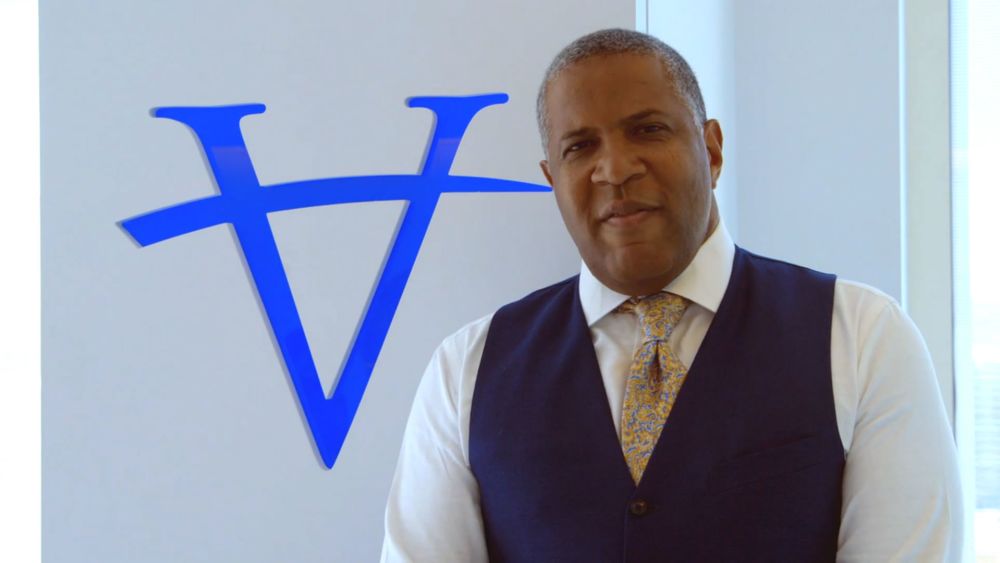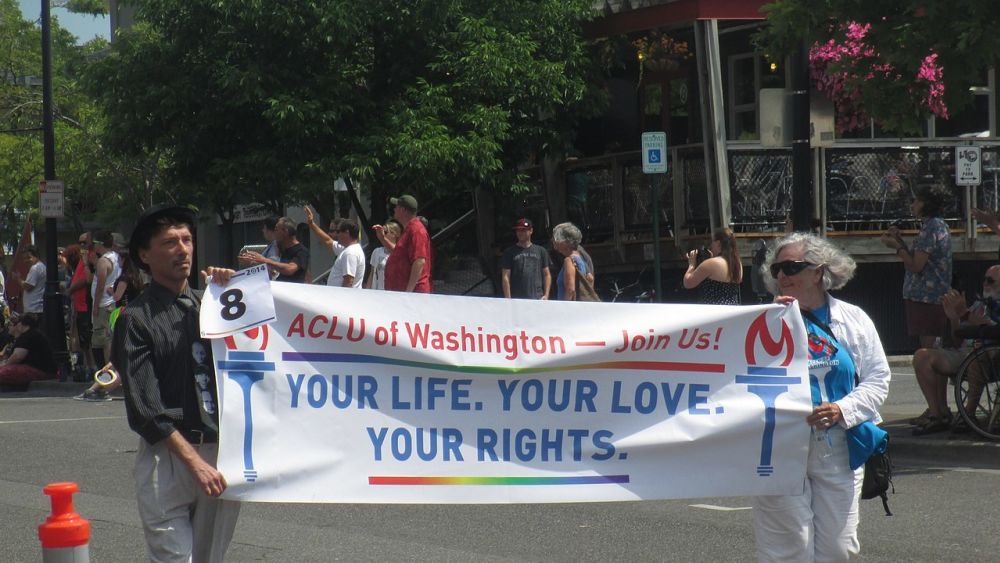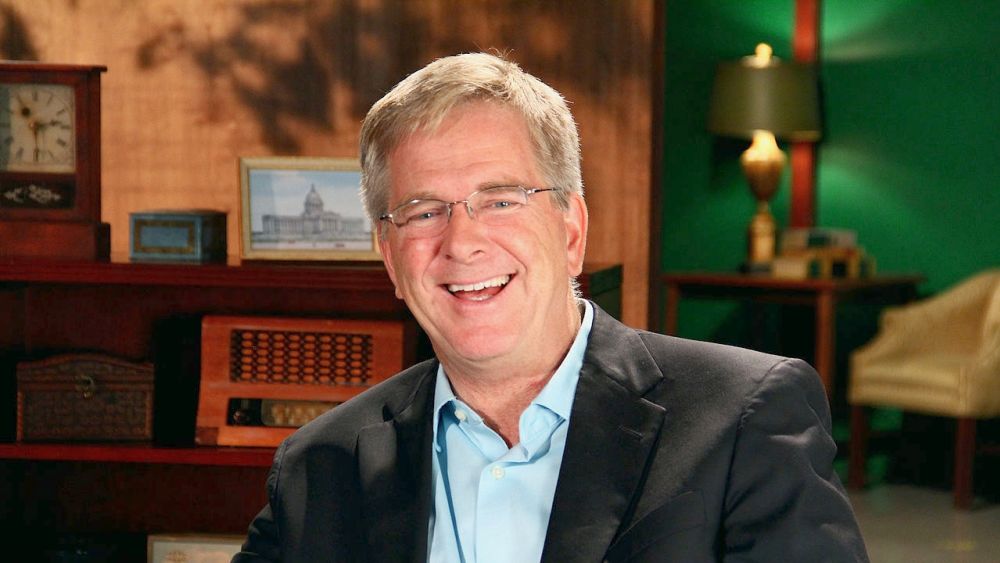Food Not Bombs: Targeting the Status Quo with Nourishing Acts of Defiance
Greggory Moore | Best of Best

image by: Elvert Barnes
In the United States, 20% of the federal budget goes to the military, and over 30% of edible food goes to waste. Operating in the ether between two statistics is Food Not Bombs, giving away food in the hope of refashioning the world as a place with healthier priorities and eating habits.
Sharing food with the hungry is an unregulated act of kindness.
So says Food Not Bombs, an organization that freely, publicly, and unrestrictedly distributes vegan/vegetarian food to anyone who wants it. But the group is speaking only morally, because in the eyes of the law there certainly is regulation on food sharing, and plenty of it. Thus comes the very next sentence on Food Not Bombs' Website: Resist all laws restricting compassion.
Keith McHenry never envisioned such resistance would be necessary when he co-founded Food Not Bombs in 1981. The group—originally just eight members in total—simply shared with the public a full meal in front of the Bank of Boston during its stockholders meeting as a "protest [against] the exploitation of capitalism and investment in the nuclear industry."
The demand for free food turned out to be far greater than the group expected, and McHenry says the founding Food Not Bombers were so moved by the response they received that they quit their jobs in order to dedicate themselves full-time to food distribution.
It was a natural step for McHenry. From his employment at natural-food store Bread and Circus, McHenry had gotten a first-hand look at just how much food goes to waste and was already doing his small part to redress the problem. "I hated throwing away all this great produce," he says, "so I started taking it to these housing projects."
Armed with such knowledge, the natural next step was to seek out other stores, bakeries, markets, etc., and offer to make sure food they would otherwise throw away would get to people in need. All that was needed, he says, was persistence.
"There's a pattern, really," he explains. "At first people put you off, because they have this bad experience of people coming and claiming they're going to feed the hungry […] and then failing to show up. So you have to come three or four times and ask. And when you do that, they realize you're persistent and serious, and then they give you the food. […] You have to just keep coming back. But once they realize you're serious about it, they are super excited that you're going to come and get it and take it away and use it. Then you get more and more food, because they know it's not going to be thrown away. […] You end up getting more and better quality food as you continue to show up. It's pretty incredible."
So it went for the next seven years, with no indication that Food Not Bombs would ever grow beyond the Boston area. But in 1988, McHenry moved to San Francisco and started a second chapter. For a few months the group shared food in Golden Gate Park without incident. The came the fateful August day when 45 police decked out in riot gear descended upon the group and arrested its four core members, along with five others who happened to be helping out. It was the first of what McHenry says was over a thousand Food Not Bombs arrests that took place over the next decade, a bizarre phenomenon that ironically transformed Food Not Bombs from a few people sharing food in just two cities to tens of thousands of food-sharers in over a thousand locations worldwide.
"Each wave of arrests would inspire other people to start Food Not Bombs chapters," McHenry says. "And that's really why it's a global movement today. Other cities would suffer arrests, and that would inspire another wave of interest. It went on and on like that. It was really incredible. […] We would probably not be a global group today if it wasn't for the arrests."
McHenry says he himself has been arrested over a hundred times for food sharing and estimates he's spent a total of over 500 nights in jail. While such adversity would dissuade most people from any endeavor, McHenry feels he never had any real choice but to stay the course because of the connections he has felt to people benefiting from Food Not Bombs' work.
"It's a beautiful experience, being able to manifest this huge amount of food for free and just give it away," he explains. "After eight years of experiencing that, it just seemed wrong to stop. […] I wouldn't have been able to live with myself if I had stopped. […] I can make a difference, so I'm going to do it."
McHenry says the need for that difference has only increased in the post-Reaganomics era, and that systemic change is needed more than charity. "The solution to hunger and poverty is changing the system, not just having more food and more charities," he says. "I saw with my own eyes that there was very little need for more food, relatively speaking, before Reagan got elected and started [implementing] his economic policies, which we currently live under and which drastically increased poverty and suffering and hunger."
Food Not Bombs Website elaborates on that point:
Even though we provide meals and groceries to thousands of people[,] we are not a charity. Food Not Bombs is trying to inspire the public to participate in changing society and focus our resources on solving problems like hunger, homelessness and poverty while seeking an end to war and the destruction of the environment. We are also showing by example that we can work cooperatively without leaders through volunteer effort to provide essential needs like, food, housing, education and healthcare. When over a billion people go hungry each day[,] how can we spend another dollar on war?
Aside from his own hands-on work sharing food that would otherwise go to waste (when I call for an interview he puts off our conversation to the following day, as he's in the middle of doing just that), McHenry personally takes the Food Not Bombs message across the country, inspiring new volunteers in the fight to change the paradigm with every speaking engagement.
One of those galvanized at such an event is Maura Cotter. Working with the anti-war movement in college, Cotter found inspiration for paradigm shift in the Occupy movement (she was involved in the Long Beach, California chapter). From there it was a small move to become involved with Food Not Bombs, which had a Long Beach chapter that shared meals every Friday on the grounds of city hall, where Occupy Long Beach was also centered. But after hearing McHenry speak in February 2013, the then-25-year-old Cotter decided to found a second Food Not Bombs chapter in Long Beach.
Inspired by an offhand comment McHenry made about how funny it would be for a Food Not Bombs chapter to share in front of a fast-food restaurant, Cotter and her chapter—originally consisting of only three or four people—began sharing in front of a downtown McDonald's.
"Our idea is to bring awareness to people who are going into McDonald's and give them a healthy choice," Cotter explains. "Or even people who are coming out of McDonald's and giving them a snack for later and being like, 'Hey, this is a healthier meal than what you just ate.'"
Cotter says that, despite her chapter's endeavoring to let the underserved community know her chapter shares in front of the McDonald's every Wednesday at around noon, they engage with a wide and ever-changing array of people. "Some of the most interesting conversations are with people you wouldn't expect to take [the food]," she says. "The idea is to share with everyone, no matter where they are within our economic system in society. Because everyone deserves healthy food."
But not everyone agrees that it's okay for food to be shared in this way. On multiple occasions a McDonald's manager called the police, claiming the chapter members were obstructing customers' right-of-way."
"We never do that," Cotter says. "We're always to the side. And we're not even aggressive with our language. We're just trying to share with people ideas about healthier eating, and also the idea of free culture. Because a lot of people are so consumed by our money exchange. And so being able to give homemade food for free is really very special."
Despite the decade-long wave of arrests suffered by McHenry and others from the late '80s into the late '90s, the Food Not Bombs Website says that today arrests are rare. But in August 2013 Cotter had the misfortune to become one of those rare arrestees, taken to jail despite being cited only with blocking pedestrian access to a business. Cotter notes that her arresting officer was known for harassing both hers and the original Long Beach Food Not Bombs chapter (a claim that chapter corroborates).
"The minute he came on, he grabbed my wrist, and he said (I think this is his favorite line), 'We can do this the easy way, or we can do this the hard way,'" Cotter recounts. "And because I remained silent and wouldn't answer any of his questions, it pissed him off. He's very aggro, very macho." The case against Cotter was dropped, and she is in the process of brining a civil-rights action against the City of Long Beach for false arrest.
Cotter freely admits that Food Not Bombs may be in violation of some of the myriad regulations pertaining to food distribution. But even were the City to get more aggressive in trying to stop the chapter from sharing, she says they would persevere.
"We are technically breaking the Health and Safety Code, because we are distributing food without a permit," she says, noting that the Health Department gave her chapter a notice to this effect the day she was arrested. "[But] it's like sharing a picnic. If people don't want the food, they won't take it. It's not like we're forcing it upon anyone. And what, are you nervous to go to a potluck and not eat that food? […] I think it's important to be able to cut the fear that people are trying to instill in us not to communicate and share with each other."
Like McHenry, Cotter thinks of the work done by Food Not Bombs as far deeper than charity. "I would definitely say that Food Not Bombs is an anti-capitalist organization," she says. "We're trying to reuse the waste of the gluttonous society that we live in currently."
In a country where even the U.S. Department of Agriculture admits that over 30% of the food supply typically goes to waste, obviously some shift in priorities is needed. And McHenry feels the necessary change is makeable.
"People's basic needs should come before process," McHenry says. "That includes food, of course. People should have a guaranteed right to food. They shouldn't be struggling to get it. Nor should they be struggling to get housing, clothing, education—the basic things. And there's obviously enough of an abundance of food and resources and housing so that every single person could have these fundamental needs met, but the economic and political system keeps [this from happening]. So Food Not Bombs is trying to change society."
About the Author:
Except for a four-month sojourn in Comoros (a small island nation near the northwest of Madagascar), Greggory Moore has lived his entire life in Southern California. Currently he resides in Long Beach, CA, where he engages in a variety of activities, including playing in the band MOVE, performing as a member of RIOTstage, and, of course, writing.
His work has appeared in the Los Angeles Times, OC Weekly, Daily Kos, the Long Beach Post, Random Lengths News, The District Weekly, GreaterLongBeach.com, and a variety of academic and literary journals. HIs first novel, The Use of Regret, was published in 2011, and he is currently at work on his follow-up. For more information: greggorymoore.com

Introducing Stitches!
Your Path to Meaningful Connections in the World of Health and Medicine
Connect, Collaborate, and Engage!
Coming Soon - Stitches, the innovative chat app from the creators of HWN. Join meaningful conversations on health and medical topics. Share text, images, and videos seamlessly. Connect directly within HWN's topic pages and articles.
















